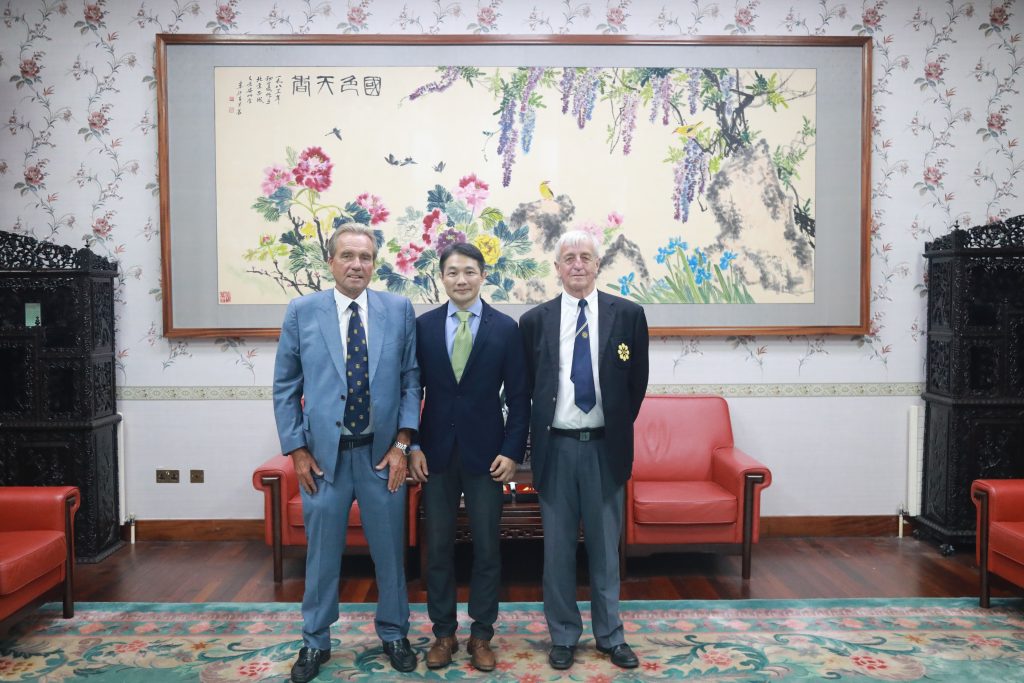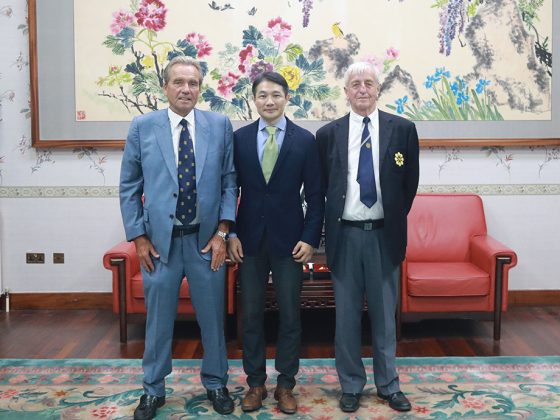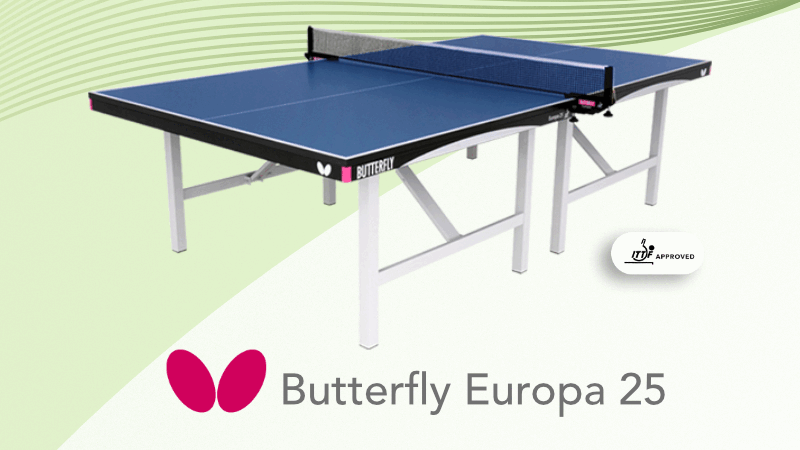Back in 2021, the Chinese Embassy in London planned a celebration to commemorate the 50th Anniversary of the historic visit to China by England’s table tennis team.
The pandemic meant that the celebration was postponed, but this has now happened some two years later, when Alan Hydes, one of the original England team members, was invited to the Embassy to meet Minister Counsellor Bi Haibo and Press & Public Affairs Attaché Wang Ping.
Unfortunately, for a variety of reasons, other members of the 1971 England team were unavailable for the gathering, but Alan was accompanied by Harvey Webb, representing the Swaythling Club International.
The meeting was very convivial and Bi Haibo expressed the importance of keeping the story of Ping Pong Diplomacy alive and recounted how he had learned about it at Junior School.
Alan added some fascinating stories especially recalling how welcome the Chinese people had made them all feel.
The meeting also touched on possible ways we could work together in the future to keep the legacy alive. It was agreed to meet again if any opportunities arose that could be mutually beneficial.

What was Ping Pong Diplomacy?
In 1971, Ping Pong Diplomacy fostered a new understanding between east and west as English players were among the first in a generation to visit China.
The invitation stemmed from American player Glenn Cowan who, after practising with China’s Liang Geliang prior to the start of the 1971 World Championship, inadvertently boarded the bus carrying the Chinese team.
It set in motion a train of events which ended up with the US team being invited to visit China after that World Championship – an invitation which was also extended to England, Canada and Nigeria.
The English players who made the trip along with Alan were Jill Parker, Pauline Piddock, Trevor Taylor and Tony Clayton, plus support staff. They entered China on April 10, 1971.
It was a trip which was reciprocated later in the year as a Chinese team visited these shores, when matches were held in Wales and Scotland as well as England, and there was a visit to 10 Downing Street and an audience with PM Edward Heath among the cultural programme.
Ping Pong Diplomacy remains a key landmark in world table tennis history – and its influence was felt in wider society around the globe and is still being felt in our sport. You can read more about this by clicking here.





